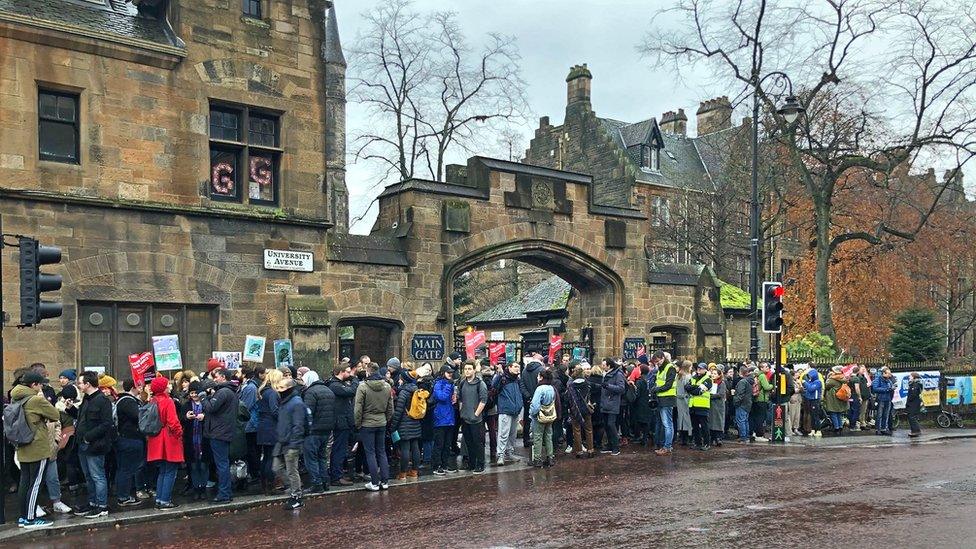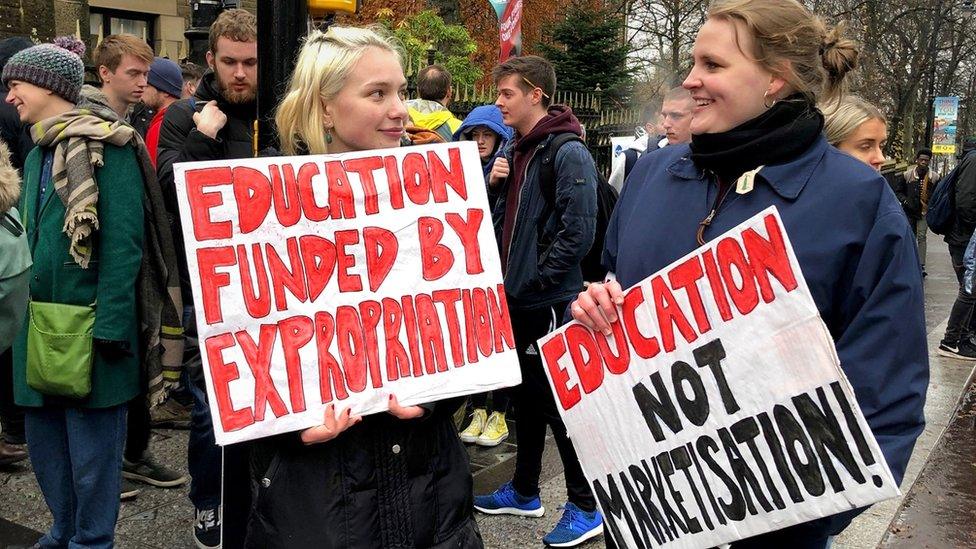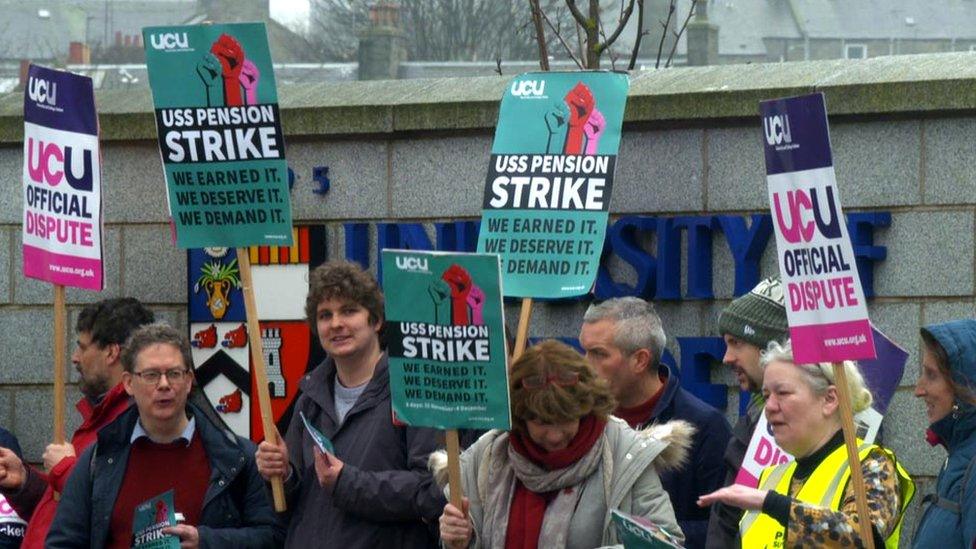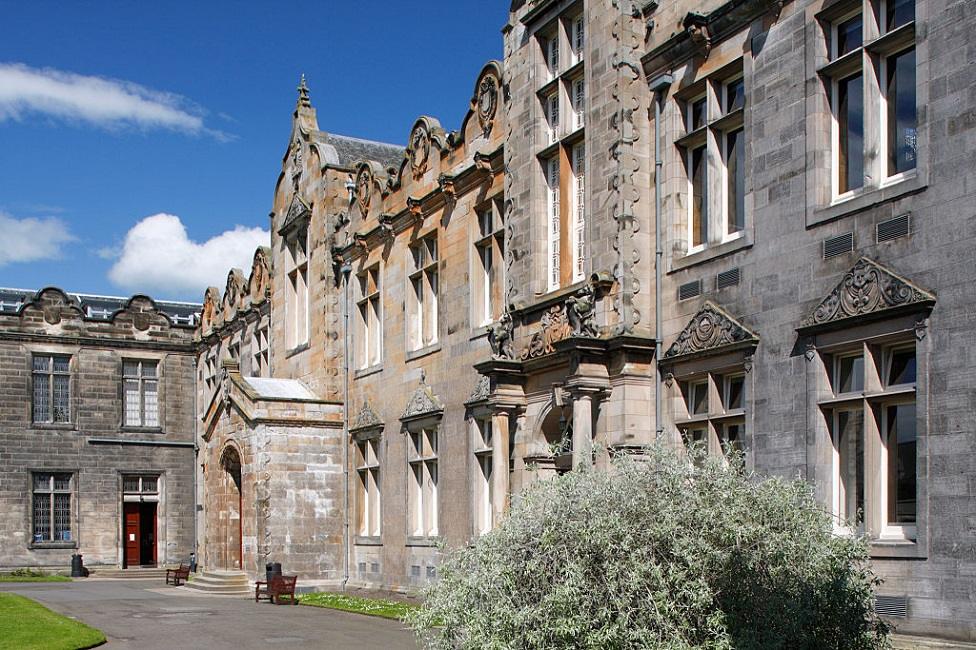Eight-day strikes at 12 Scottish universities begin
- Published

Striking staff demonstrated outside Glasgow University
An eight-day strike affecting 12 Scottish universities has begun.
Members of the University and College Union (UCU) are disputing pay, working conditions and pensions.
Staff are expected to join picket lines at entrances as a further 48 universities across the UK take action on Monday.
Umbrella body Universities UK said institutions would do all they could to minimise the effects of the strikes on students and other staff.
A rally was held in Edinburgh's Bristo Square.

What is the strike all about?
The action relates to two separate disputes - one on pensions and one on pay and working conditions.
In Scotland, UCU said that 78% of members polled voted for strikes over changes to pensions and 73% backed strikes over pay and conditions.

Staff braved rain on the picket line at the University of Aberdeen
As well as eight strike days, union members will begin further industrial action when they return to work such as refusing to cover absences or rescheduling lectures lost and working to contract.
UCU's Scotland official Mary Senior said that while strikes were a "last resort", universities had left members with "no alternative".
"We're asking students to call on university principals to get their representatives back to negotiating table for serious talks," she added.
However, university leaders have written an open letter to all staff where action is planned, saying they do not agree with the union's claims that strikes were "forced".
Which universities are affected?

Staff at the University of St Andrews are among those striking over pensions, pay and conditions
Eight are striking in Scotland over pensions, pay and conditions: Heriot-Watt University, University of Aberdeen, University of Dundee, University of Stirling, University of Edinburgh, University of Glasgow, University of St Andrews, University of Strathclyde
Three are taking action over pay and conditions only: Glasgow Caledonian University, Glasgow School of Art and Queen Margaret University
One is striking over pensions alone: Scottish Association for Marine Science
What are the universities saying about the strikes?
The University and Colleges Employers' Association (UCEA) and Universities UK (UUK) said that on pay, increases of between 3.65% and 1.8% have been implemented from August 2019.
They also cite employers have recently increased their pension contributions to 21.1% of salary (from 18%) to protect current benefits, with members paying 9.6% of salary up from 8%.
Professor Julia Buckingham, president of Universities UK, called on the UCU to work with employers on "joint and fair solutions".
Professor Mark E Smith, chairman of UCEA, added that the pay offer was "fair" and said the pensions benefits were "excellent".
UCEA chief executive Helen Fairfoul added: "We all regret any disruption, especially to students, that is caused by UCU's strike action that started today.
"Early reports from universities are of some low and some medium levels of disruption to teaching."
Higher education minister Richard Lochhead said that while the matter was not a Holyrood responsibility, strikes "will not be in anyone's interest".
He added: "Universities are autonomous institutions and matters relating to staff and pay are for them to determine.
"While it is not for this government to intervene, industrial action will not be in anyone's interest, including for the students at these institutions, and I expect management and unions to make every effort to reach a settlement."
- Published5 November 2019
